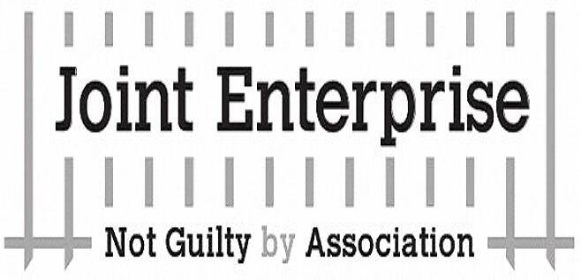The House of Commons Justice Committee is set to hold a further inquiry into joint enterprise.
Since 2010 the prisoners’ support group JENGbA (Joint Enterprise – Not Guilty by Association) has been campaigning to reform the legal doctrine of joint enterprise, also known as common purpose. Joint enterprise allows for individuals who ‘knowingly assisted or encouraged’ a crime to be charged as though they had personally committed the crime themselves. ‘Knowing assistance’ can include where defendants ‘should have foreseen’ the results of others’ actions. This has led to hundreds of people being convicted of murder (which has a mandatory life sentence) and other serious crimes, which the state acknowledges they did not physically commit.
Following campaigning by JENGbA, the House of Commons Justice Committee held an inquiry into joint enterprise in 2011. Its report, published in January 2012, found that ‘the lack of clarity … on joint enterprise is unacceptable’. A recent report by the Bureau of Investigative Journalism has added further evidence (Read an IRR News story: Joint Enterprise: the long and winding road to reform).
Now, the Justice Committee has proposed to hold a further inquiry into changes that have occurred since 2012, and called for the submission of additional evidence. The committee has asked for views on two issues:
- The impact of the Crown Prosecution Service guidance on joint enterprise (published in December 2012) on prosecutorial policy and;
- Progress the Government has made in consulting on the Law Commission’s proposals relating to joint enterprise.
The Justice Committee has also said it would ‘welcome factual and/or statistical information on the extent, if any, to which the use of joint enterprise has disproportionately affected certain communities and ethnic groups.’
In fact, evidence of disproportionality does exist. Of the 450 prisoners being supported by JENGbA, around 78 per cent are from BME families. The CPS however, does not keep statistical records on joint enterprise, much less its use against black and minority ethnic individuals.
Speaking to IRR News today, Gloria Morrison, Campaign Coordinator of JENGbA said:
We are already concerned about disproportionality in the use of joint enterprise to target BME communities and are also concerned about the increasing targeting of Muslim communities. Another development we are aware of is that foreign nationals are being extradited even if they haven’t committed index offences, including extraditions to countries where the death penalty is in use.
This is not just about changing the law for the future. We are demanding a full inquiry into those cases where people have already been convicted under joint enterprise.
Related links
Read an IRR news story: Joint Enterprise, racism and BME communities
Read an IRR news story: Joint enterprise: the long and winding road to reform

